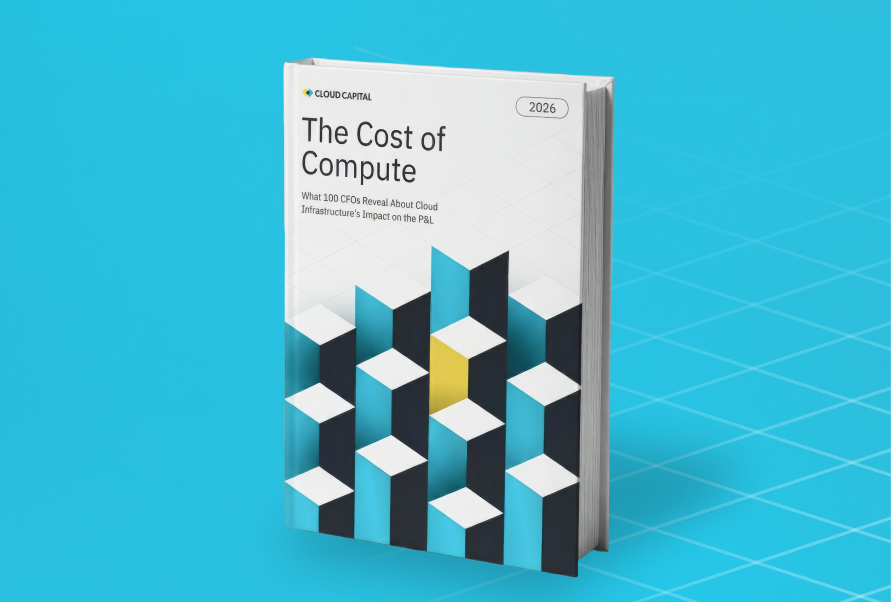4 Steps to a Predictable 2026 Cloud Infrastructure Budget [CFO Workshop]

Sections

TLDR
- Why 89% of CFOs say rising cloud costs are directly eroding their profitability
- The four-step framework for moving from unpredictable spend to confident forecasting
- How to build a baseline forecast using historical patterns, then align it to business growth and engineering roadmaps
- Why scenario planning matters when plans inevitably change
- The critical importance of regular finance-engineering collaboration on cloud budgets
Cloud spend has become the second-largest line item on most tech companies' P&Ls—right after headcount. But unlike headcount, it's far less predictable, harder to plan for, and increasingly eroding profitability as companies scale.
In this workshop, Cloud Capital CEO Ed Barrow walks CFOs through a practical four-step framework for transforming unpredictable cloud costs into a confident, defensible budget for 2026. Drawing on insights from over 100 UK and US CFOs surveyed on how they manage cloud infrastructure, Ed breaks down exactly how to bring finance and engineering teams together to forecast, plan, and iterate on cloud spend—without needing perfect data to start.
What's Inside
The Cloud Cost Challenge - 02:29
Ed opens with findings from Cloud Capital's recent survey of 100+ CFOs, revealing that cloud infrastructure is now the second-largest P&L line item after headcount—and for 89% of finance leaders, it's rising fast and directly eroding profitability. The problem? Most CFOs treat it as a black box, leaving them unable to forecast accurately or align cloud spend with business strategy.
The Four-Step Framework - 06:22
The core methodology: establish a baseline forecast from historical spend, align it to your business plans (both revenue growth and engineering roadmap), stress-test with scenarios for upside and downside cases, and then iterate regularly. Ed emphasises that you don't need perfect data to start—you can begin this process today with what you already have.
Building Your Baseline - 07:20
Step one is understanding where you are today. Ed walks through how to look at the last few months of cloud spend, identify predictable patterns and trends, and use that as your starting point. This isn't about perfection—it's about establishing a foundation that finance and engineering can both agree represents current reality.
Aligning to Business Plans - 10:40
Once you have a baseline, the real work begins: connecting that forecast to what's actually happening in the business. Ed breaks down how to incorporate revenue growth drivers (more customers, more usage) and engineering initiatives (new product launches, re-architecting, migrations, cost-saving projects) into your cloud forecast. This is where finance and engineering must collaborate—neither team has the full picture alone.
Creating a Living Forecast - 20:01
The final piece: treating your cloud budget as a living document, not a static annual plan. Ed explains why regular monthly or quarterly check-ins between finance and engineering are essential—because plans change, growth accelerates or slows, and engineering roadmaps shift. He emphasises that these reviews aren't about blame; they're about adjusting the forecast to match reality and maintaining alignment across teams.
------
Cloud spend is your second-largest expense. But unlike headcount, it's unpredictable, misunderstood, and eroding your margins.
After 26 minutes, you'll have a clear framework to transform that black box into a defendable 2026 budget—and you can start today.
We're here to help growth-stage CFOs bring predictability and efficiency to cloud infrastructure.
- Ed Barrow
CEO & Founder at Cloud Capital







